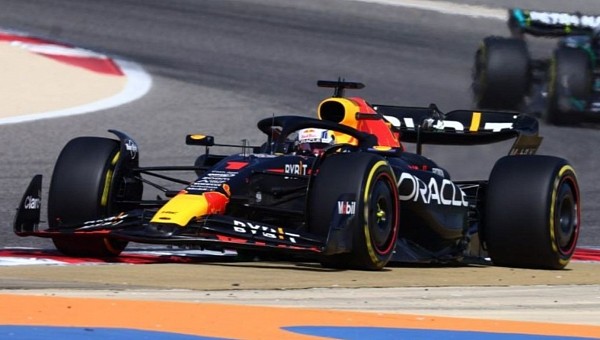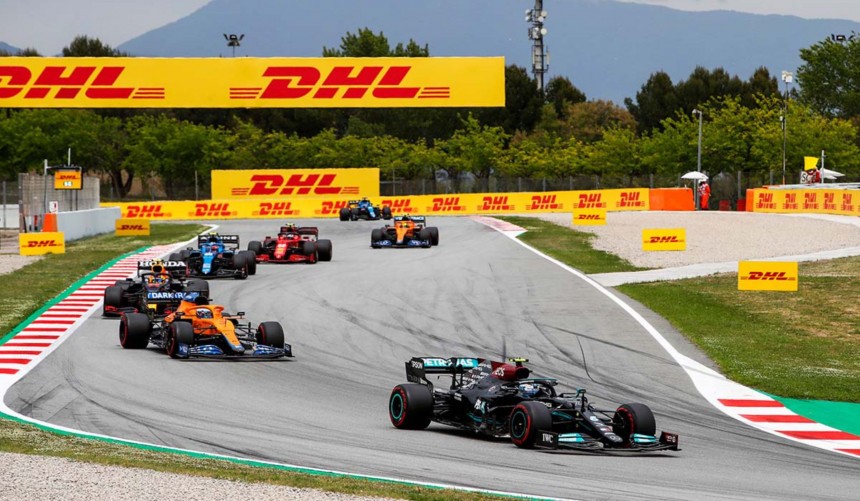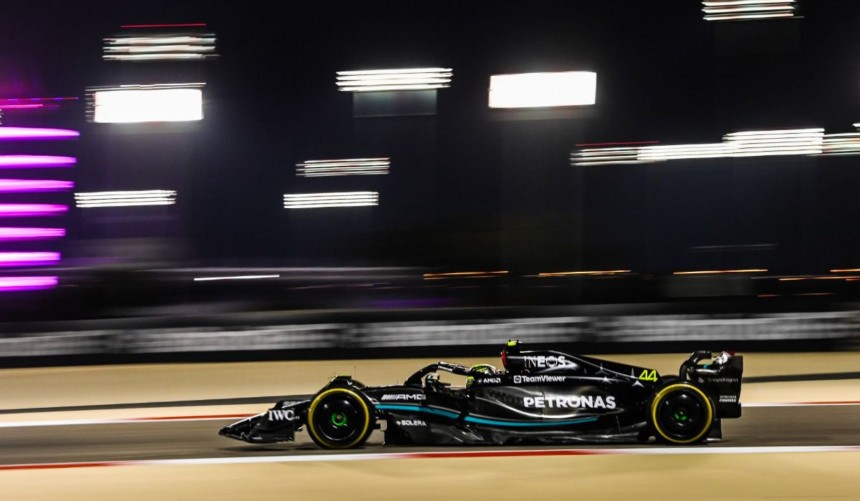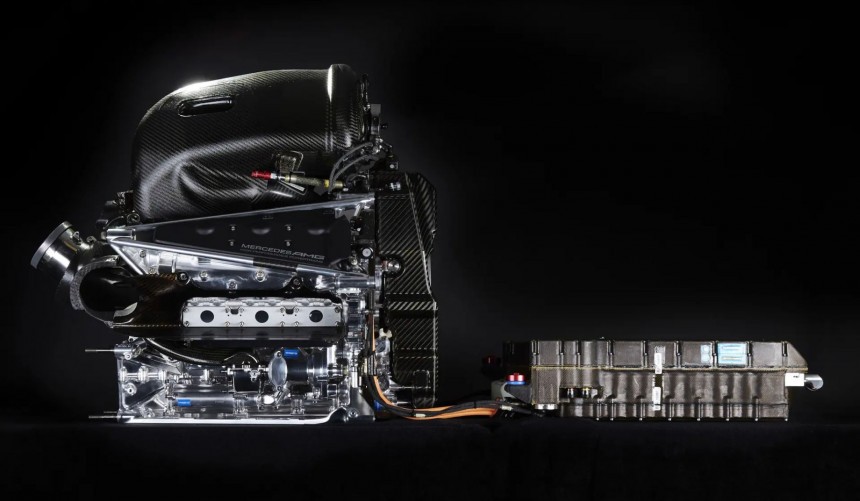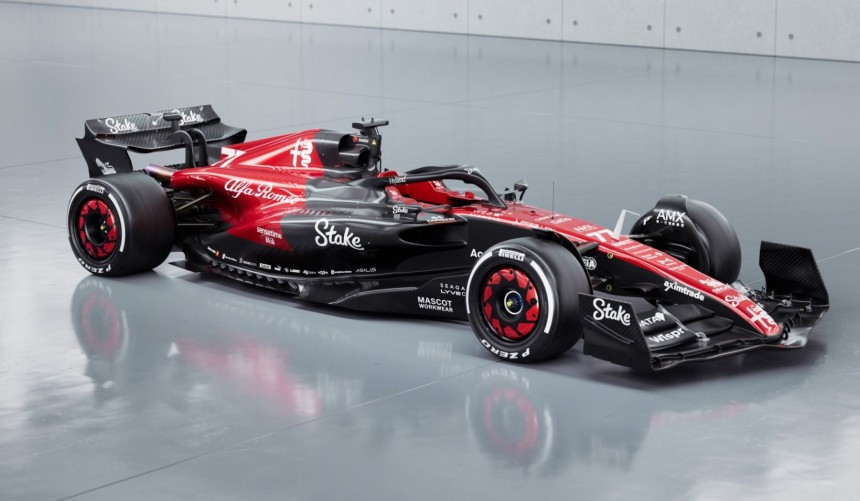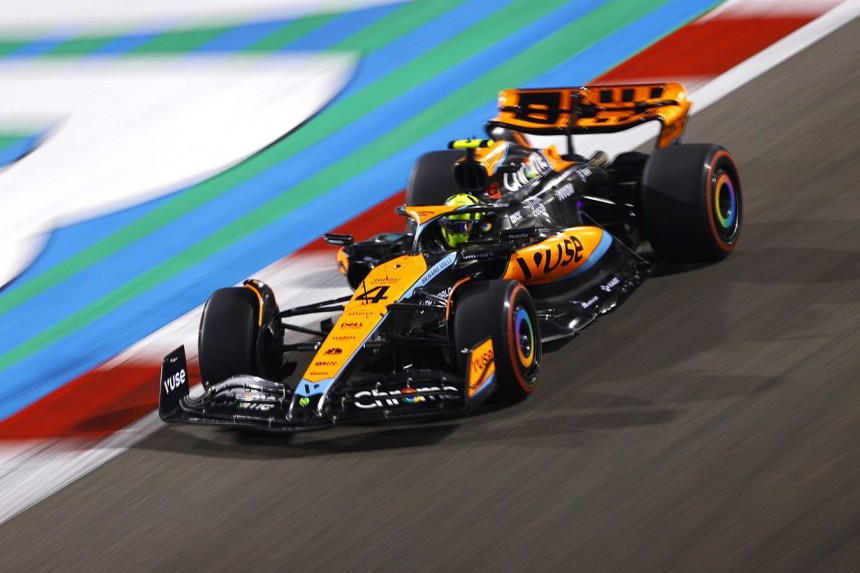Although some might disagree, watching the popular Netflix series "Formula 1: Drive to Survive" is a lot more exciting than following the actual competition it's based on.
I started watching Formula 1 about two decades ago. Even though I was 9 years old, I vividly remember the first race I saw. It was the season-opener at Melbourne and although David Coulthard crossed the finish line first in his McLaren-Mercedes, I ended up rooting for Michael Schumacher. That’s partially because I had about ten posters with Ferrari supercars on my bedroom wall and partially thanks to the local TV pundit’s reporting about Schumacher’s struggles to bring Ferrari back to the top.
I watched every single race that season, enjoying the epic battle between my favorite driver and the talented Jacques Villeneuve, who managed to clinch the driver’s title. The following season was also a thrill to watch, as Mika Häkkinen beat Schumacher for the title. Although Ferrari’s struggles continued, I kept rooting for them and, in 2000, the German finally won it all behind the wheel of a Prancing Horse.
What followed next is remembered by every Formula 1 fan. Schumacher and Ferrari would dominate Formula 1 for the next four seasons and although I was a fan, the lack of competition turned me away from the sport as it became boring. I started watching more races again in 2006 and for about five years, the series became exciting again.
However, in recent years, Formula 1 has become boring once again and in this article, I’ll explore five reasons why I’d rather watch a bad reality show or paint a fence and watch it dry.
Until my all-time favorite ruined the sport during the early-2000s, only one person, the great Juan Manuel Fangio, was able to win the drivers’ title for more than two consecutive seasons.
Schumacher was the second, then, five years later, Sebastian Vettel won the first of four consecutive titles, and, finally, Lewis Hamilton obliterated any form of excitement by winning six titles in seven seasons.
In 2021, we were treated to one of the most thrilling seasons in over a decade, when Max Verstappen clinched the title during the season finale in Abu Dhabi. I thought that, after seeing only seven drivers winning the title in the last 20 years, Formula 1 was finally becoming competitive once again, but I was proven wrong last year as Verstappen secured his second title with ease. Even worse, this season debuted with another win for the Dutch driver, followed by a second-place finish, and it seems unlikely that someone will stop him from grabbing a third title.
These never-ending runs of dominance by a single driver make the sport way too predictable and are the main reason why Formula 1 has become so boring.
These days, major sports are businesses rather than true sporting competitions. However, Formula 1 is the only major sport that has failed to stop boring its fan base in the pursuit of earning more money.
Apart from predictability, another major reason for this is just how frustratingly expensive and complicated it is to join the competition. This prevents other manufacturers from coming in and potentially implementing new ideas or technologies that could shake things up and make Formula 1 more exciting.
The organizers of the 24-hour race at Le Mans had the same problem. In recent years, many established carmakers pulled out of the premier LMP1 category. However, they made some adjustments and have managed to attract the likes of Ferrari, GM (with Cadillac), Peugeot, and Porsche, who are set to join this year’s hypercar class.
Formula 1 will see Honda coming back as a fully-independent constructor in 2026. Moreover, Audi is set to join the competition for the first time. It seems that this issue will slowly but surely be addressed, but it remains to be seen if it will make things more competitive.
This one is closely related to the issue I talked about before. Mercedes, Ferrari, Red Bull-Honda, and Renault. These are the only engine manufacturers involved in Formula 1 these days.
The lack of variety is another frustrating problem that has plagued the competition for decades and contributes to the lack of excitement.
While I understand why private teams like Williams, Haas, or AlphaTauri (Red Bull’s second team) can’t afford to develop their new engines, it’s depressing to see legendary names like Alfa Romeo or Aston Martin running with Ferrari or Mercedes units. I’m well aware they do that with production cars too, but come on, at least show some pride in the world’s top motorsport competition.
I know I’m going to get a lot of hate for this, but here it goes: too much emphasis on safety and sustainability makes Formula 1 extremely boring.
Let me start by saying that, as far as safety is concerned, I don’t want to see drivers die during a race. That’s just awful! But that being said, racing missiles on wheels is not for the faint-hearted, and serious injuries or death are risks associated with Formula 1, just as they are with many other sports. Manufacturers should continue to prioritize driver safety, but that shouldn’t result in cars that look like four-wheeled flip-flops. Yes, I hate that halo with all my heart and soul.
In terms of sustainability, well, we have Formula E for that. Formula 1 is a competition where those who pay money to sit trackside want to get high on petrol fumes and tire smoke. In the heat of the moment, nobody’s thinking about rising sea levels and the environment. But that should undoubtedly remain a priority. So why not ditch complicated hybrid technologies and exhaust systems, bring back V10s, and feed them synthetic, eco-friendly fuels?
One of the things that made me fall in love with Formula 1 back in the late 1990s was the unmistakable and deafening sound of a naturally-aspirated V10 being revved to its limit.
The era of the V10 ended in 2005, when constructors switched to V8s, and today, the cars are running 1.6-liter V6 turbo engines coupled with an electric motor that’s expensive, complicated, and doesn’t dramatically improve performance.
Small displacement, turbocharged sixes (and even fours) have been previously used in Formula 1 during the 1980s in what was probably the competition’s most exciting decade. So, even if I’m a huge V10 fan, I don’t have a problem with downsizing as long as the engines don’t sound worse than the Mustang’s EcoBoost.
FIA, the competition’s organizers, have apparently recognized this issue since many commercials feature footage of current-gen cars with V10 sounds edited in. They also intend to modify engine regulations so that constructors can make better-sounding units.
In conclusion, even though FIA is taking some steps in the right direction, Formula 1 is still disappointingly boring. Let’s hope that things will improve and the competition will become as exciting as the IndyCar Series. Speaking of which, the YouTube video below by Donut Media puts into perspective why the North American series is currently better to watch than Formula 1.
I watched every single race that season, enjoying the epic battle between my favorite driver and the talented Jacques Villeneuve, who managed to clinch the driver’s title. The following season was also a thrill to watch, as Mika Häkkinen beat Schumacher for the title. Although Ferrari’s struggles continued, I kept rooting for them and, in 2000, the German finally won it all behind the wheel of a Prancing Horse.
What followed next is remembered by every Formula 1 fan. Schumacher and Ferrari would dominate Formula 1 for the next four seasons and although I was a fan, the lack of competition turned me away from the sport as it became boring. I started watching more races again in 2006 and for about five years, the series became exciting again.
However, in recent years, Formula 1 has become boring once again and in this article, I’ll explore five reasons why I’d rather watch a bad reality show or paint a fence and watch it dry.
It’s predictable and lacks competitiveness
Schumacher was the second, then, five years later, Sebastian Vettel won the first of four consecutive titles, and, finally, Lewis Hamilton obliterated any form of excitement by winning six titles in seven seasons.
In 2021, we were treated to one of the most thrilling seasons in over a decade, when Max Verstappen clinched the title during the season finale in Abu Dhabi. I thought that, after seeing only seven drivers winning the title in the last 20 years, Formula 1 was finally becoming competitive once again, but I was proven wrong last year as Verstappen secured his second title with ease. Even worse, this season debuted with another win for the Dutch driver, followed by a second-place finish, and it seems unlikely that someone will stop him from grabbing a third title.
These never-ending runs of dominance by a single driver make the sport way too predictable and are the main reason why Formula 1 has become so boring.
It’s prohibitively expensive and too complicated to join
Apart from predictability, another major reason for this is just how frustratingly expensive and complicated it is to join the competition. This prevents other manufacturers from coming in and potentially implementing new ideas or technologies that could shake things up and make Formula 1 more exciting.
The organizers of the 24-hour race at Le Mans had the same problem. In recent years, many established carmakers pulled out of the premier LMP1 category. However, they made some adjustments and have managed to attract the likes of Ferrari, GM (with Cadillac), Peugeot, and Porsche, who are set to join this year’s hypercar class.
Formula 1 will see Honda coming back as a fully-independent constructor in 2026. Moreover, Audi is set to join the competition for the first time. It seems that this issue will slowly but surely be addressed, but it remains to be seen if it will make things more competitive.
Ten teams, four engine manufacturers
The lack of variety is another frustrating problem that has plagued the competition for decades and contributes to the lack of excitement.
While I understand why private teams like Williams, Haas, or AlphaTauri (Red Bull’s second team) can’t afford to develop their new engines, it’s depressing to see legendary names like Alfa Romeo or Aston Martin running with Ferrari or Mercedes units. I’m well aware they do that with production cars too, but come on, at least show some pride in the world’s top motorsport competition.
Too much emphasis on safety and sustainability
Let me start by saying that, as far as safety is concerned, I don’t want to see drivers die during a race. That’s just awful! But that being said, racing missiles on wheels is not for the faint-hearted, and serious injuries or death are risks associated with Formula 1, just as they are with many other sports. Manufacturers should continue to prioritize driver safety, but that shouldn’t result in cars that look like four-wheeled flip-flops. Yes, I hate that halo with all my heart and soul.
In terms of sustainability, well, we have Formula E for that. Formula 1 is a competition where those who pay money to sit trackside want to get high on petrol fumes and tire smoke. In the heat of the moment, nobody’s thinking about rising sea levels and the environment. But that should undoubtedly remain a priority. So why not ditch complicated hybrid technologies and exhaust systems, bring back V10s, and feed them synthetic, eco-friendly fuels?
Current cars sound awful
The era of the V10 ended in 2005, when constructors switched to V8s, and today, the cars are running 1.6-liter V6 turbo engines coupled with an electric motor that’s expensive, complicated, and doesn’t dramatically improve performance.
Small displacement, turbocharged sixes (and even fours) have been previously used in Formula 1 during the 1980s in what was probably the competition’s most exciting decade. So, even if I’m a huge V10 fan, I don’t have a problem with downsizing as long as the engines don’t sound worse than the Mustang’s EcoBoost.
FIA, the competition’s organizers, have apparently recognized this issue since many commercials feature footage of current-gen cars with V10 sounds edited in. They also intend to modify engine regulations so that constructors can make better-sounding units.
In conclusion, even though FIA is taking some steps in the right direction, Formula 1 is still disappointingly boring. Let’s hope that things will improve and the competition will become as exciting as the IndyCar Series. Speaking of which, the YouTube video below by Donut Media puts into perspective why the North American series is currently better to watch than Formula 1.
